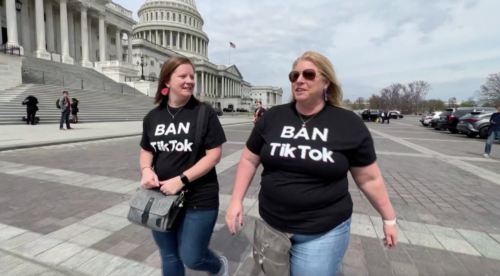Trump administration move puts 370,000 Chinese student visas at risk
The Immigration and Customs Enforcement (ICE) agency said that if schools move to online-only education in the fall, then student visas could be cancelled and deportations would ensue. Chinese students are the largest group affected.

For months, the Trump administration has tried to downplay the severity of the COVID-19 crisis, with senior officials like Vice President Mike Pence insisting last month that “we are far better off than the media report,” even as the virus spread wider throughout the country. Since then, the U.S. has set new world records for daily COVID-19 cases, and the European Union has closed its borders to most American travelers.
Facing an unabated epidemic, many American universities have chosen to continue with online classes in the fall. President Trump, seeing recognition of public health reality as a political threat, tweeted yesterday, “SCHOOLS MUST OPEN IN THE FALL!!!”
The Trump administration is now attempting to force universities to stay open by threatening international students.
- The Immigration and Customs Enforcement (ICE) agency said that if schools move to online-only education, then any students holding F-1 and M-1 visas — for academic and vocational students, respectively — “may face immigration consequences including, but not limited to, the initiation of removal proceedings.”
Chinese students are the largest group affected. Out of more than 1.1 million foreign students holding visas in the U.S. right now, about 370,000 are Chinese, according to Caixin (paywall). Students at schools that have plans to go entirely online seem to have three options:
- Transfer to a school that has in-person classes in the fall.
- Hope that their school will switch to a hybrid model, so some classes can be held in person in the fall.
- Travel back to their home country.
Some Chinese students may currently be overseas, and getting back to the U.S. to attend in-person classes may be difficult. Caixin points out, “Students from China, Brazil, the EU and other regions cannot enter the United States even if they manage to get a valid visa, as travel restrictions are still in place.”
- In response to this, “Cornell University has said Chinese students unable to attend college this year due to coronavirus restrictions will be able to study at designated universities in China,” Caixin notes.
Returning home may also not be a viable option for some, for multiple reasons, including a policy that Beijing has implemented to restrict air traffic coming into China.
- The “Five Ones” policy (“五个一”政策 “wǔ gè yī” zhèngcè), under which Beijing “allows mainland carriers to fly just one flight a week on one route to any country and foreign airlines to operate just one flight a week to China,” according to Reuters, has been in place since March 29 and was extended until at least October.
Chinese reaction
There is no official government response to the action yet. On social media platform Weibo, however, a hashtag for the news titled “Students studying abroad in U.S. might get kicked out if they only take online classes” (#在美留学生若只上网课或被要求离境#) has received nearly 100 million views and sparked heated discussion.
“This will end up offending the best students in the world, including those in India,” one commenter pointed out (in Chinese). Another in the same thread remarked, “Luckily, I chose not to study abroad.”
They are not alone in their increasing aversion to studying abroad. According to a survey by Marina Yue Zhang of the Swinburne University of Technology, “Only 40% of students in China who previously intended to study overseas still plan to, while just under 50% of those who had studied overseas plan to return to their study after the borders reopen.”
The U.K. has also surpassed the U.S. as the top choice for Chinese students’ international studies for the first time, according to a survey by Vision Overseas Consulting Co.






